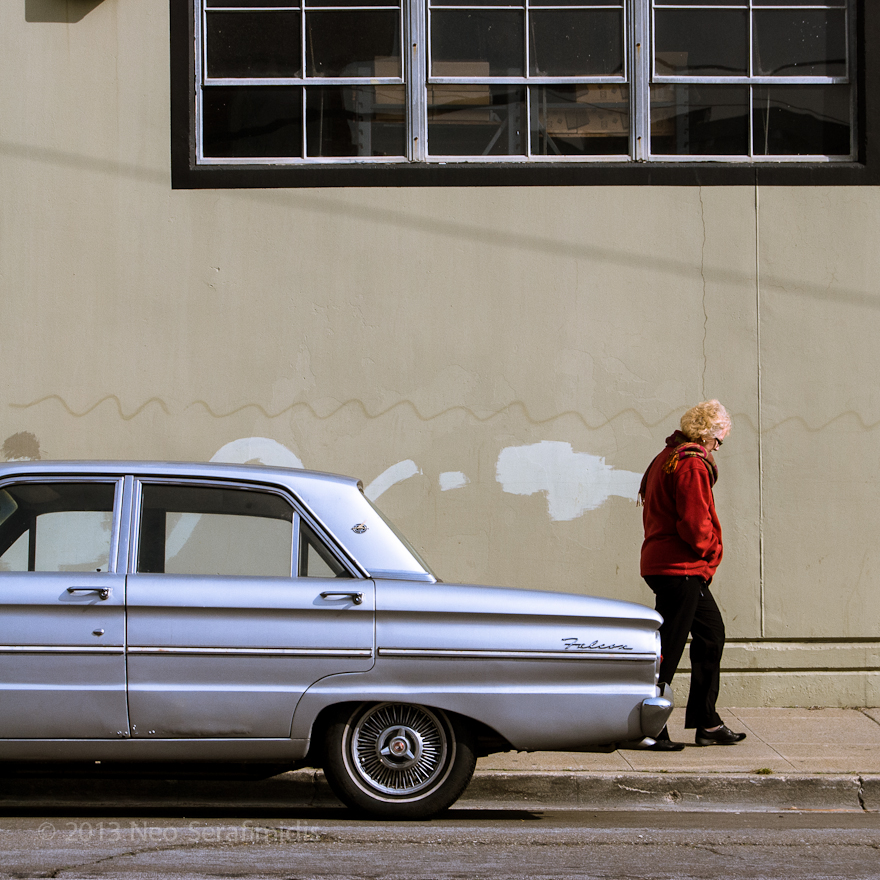Posts Tagged: emeryville
Christmas Time Sunset
We picked Sarah’s parents up in Emeryville and headed down to Newark for dinner with friends. Across the bay, the sun was setting behind San Francisco. I tried to resist, but as we were leaving, I couldn’t stand it anymore and stopped to take some shots of the sunset. Out on the south side of the Watergate, the last burning rays reflected off the low-tide mud, and it was just too much to not at least try to shoot. I only had the 35mm prime with me, but it would have to do. I’m pleasantly surprised at how well this hand-held 1/25th sec. shot came out. Granted, I had to kneel in the ice plant in my dress clothes to stabilize myself.
She’s a Beauty 2

She’s a Beauty 2, originally uploaded by neocles.
The other day I was reflecting on my habit of photographing old cars around my neighborhood. It’s curious, because I am not particularly into cars. But I am in a phase in which I’m enamored of old things, mostly mid-century things. Even this interest, however, suddenly struck me as making little sense. I thought of Heraclitus. There is a way of understanding time that goes back to something he said: “You cannot step into the same river twice, for all is change.” So, why become obsessed with the past? Perhaps the Italian Futurists had it right: tear it all down and rebuild culture with every new generation.
I started thinking about this metaphor of time flowing, of time as a river, and a powerful, inexorable one at that. The surface may be placid and peaceful, or raging and turbulent, just like the “the times”. But no matter the surface, the current beneath pushes everything out into the vast ocean of oblivion. The lesson behind this way of trying to understand time is that resistance is futile, that try as one might to hold on to something, to keep things the way they are, it is impossible. What now is, will be stripped away. Thus, it is better to accept change, to embrace it and push it forward.
It seems to me that the river metaphor turns on an idealization: a river flowing within an idealized channel with perfectly frictionless banks. Only in this way can it persuade us that resistance is futile. The ephemera of existence — in this context, all of existence is ephemera — all float by uniformly and obediently.
Now, it also seems to me that filling out this metaphor of time as a river leads to something else. Trading in the idealized channel for something more closely resembling that of a river in our actual experience, we see that not all the contents of the river are propelled equally well and swiftly downstream. Instead, the banks of the river contain secrets. Nooks and crannies trap flotsam and create eddies. Bugs and toads, twigs and soda cans all linger there. Perhaps some things stick around for awhile. Perhaps not forever, but longer than ourselves. In that sense, trying to hold on to the things to which we are emotionally attached might not be so futile after all. Perhaps we can explore the banks of this river and find many things twirling there for our enjoyment. Like old cars.


You must be logged in to post a comment.